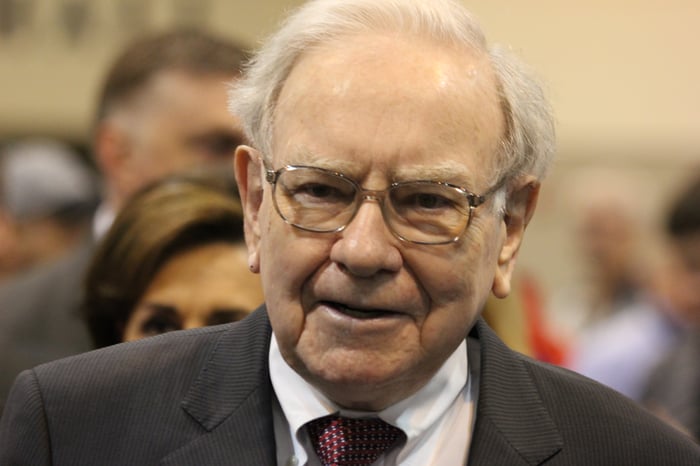Regardless of current market conditions, it's always beneficial to observe Warren Buffett's investment decisions. Buffett has consistently demonstrated a deep understanding of the stock market and successfully translated that knowledge into remarkable investing achievements. As the leader of Berkshire Hathaway for almost six decades, he has overseen an average annual return of about 20%. This performance far surpasses that of the S&P 500 ( ^GSPC -0.32%), which has produced a 10% compound return in the same period.
During times when the market faces uncertainty, Buffett's strategies become even more relevant. This could be one of those periods, with the S&P 500 hovering around its highest levels and as we enter a month that has historically posed challenges for investors. So, what actions has Buffett taken lately? Over the last several years, he has consistently sold more stocks than he has purchased each quarter.
Thanks to these decisions, Berkshire Hathaway now holds $344 billion in cash, a signal that some interpret as a clear warning to Wall Street. But does this suggest you should steer clear of stocks during the often-volatile month of September? Let's take a closer look.

Image source: The Motley Fool.
Stocks in September
First, let's consider September as a month. Historically, it has produced the poorest returns for investors, a pattern confirmed by recent figures. Over the last five years, the S&P 500 posted a gain only once in September—with a 2% increase last year. The other Septembers saw declines between 3% and 9%. If these patterns persist, we may be in for another rough month with possible short-term hits to portfolio values.
Now, turning to Buffett's cautionary approach. The famed investor rarely follows the crowd. For instance, when the market rushes into artificial intelligence (AI) stocks, Buffett typically stays on the sidelines. This isn't mere contrarianism; rather, Buffett prioritizes value—seeking out high-quality businesses that may currently be underappreciated but have strong long-term prospects.
So, while many investors have recently favored tech and growth stocks, driving up the S&P 500, Buffett has been selective in his purchases and has continued to build his cash reserves, preparing for future opportunities. The core of Buffett's warning is that stocks are becoming pricey, raising the risk of a potential market pullback.
This is evident in the S&P 500 Shiller CAPE ratio, which is currently at a level it has only reached twice since the index was expanded to 500 companies.
S&P 500 Shiller CAPE Ratio data by YCharts
What Buffett does in this investing environment
The Shiller CAPE ratio is a valuable tool because it reflects a company's inflation-adjusted earnings per share averaged over a decade. The current elevated ratio suggests that overall, the market is expensive, prompting Buffett to proceed with extra caution.
Given these factors, should you consider buying stocks or staying away during the stock market's most challenging month? Emulating Buffett, it's wise to focus on valuations and refrain from purchasing stocks that appear overpriced—this principle holds true in any market cycle, whether markets are climbing or declining. (As always, there are exceptions: aggressive investors might be interested in high-growth tech stocks trading at lofty valuations if their long-term outlook is promising.)
Opportunities on the horizon?
Even so, this doesn't mean investors should avoid stocks completely, nor is Buffett suggesting to stop investing. Instead, his massive cash reserves hint that opportunities are currently limited, often because of inflated prices. The upside? If the market follows the historical pattern and drops in September, this could open up attractive buying opportunities—making September an ideal time for patient, value-focused investors to look for bargains.
Buffett has affirmed this approach, once saying, "The best chance to deploy capital is when things are going down."
History shows that both the broader market and quality companies rarely stay down for long. By purchasing at lower levels and holding for the long run, investors can position themselves for substantial gains.
In summary, it may indeed be worth considering stock purchases even during the most challenging month of the year—provided, like Buffett, you ensure you're paying a fair price.

